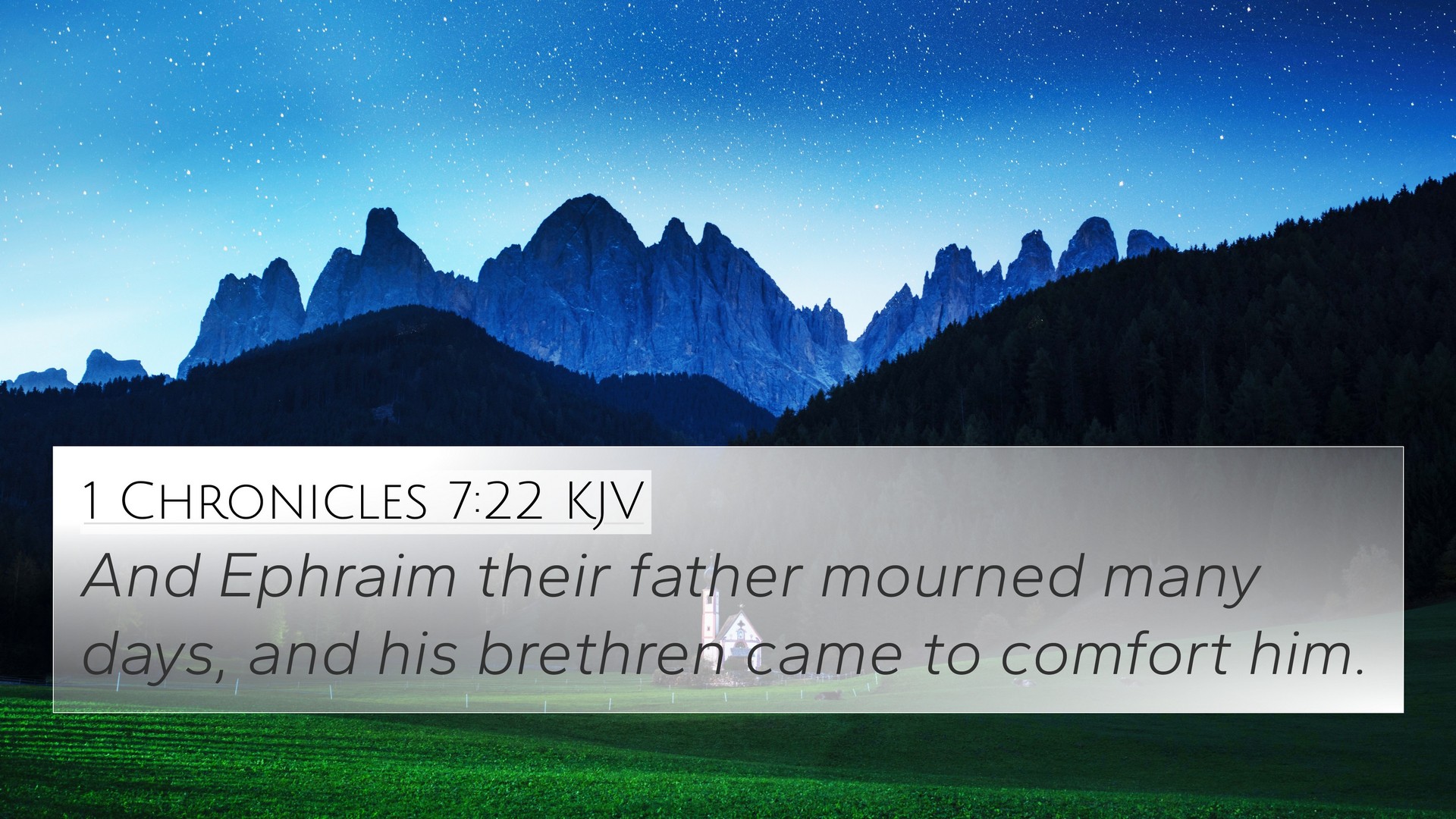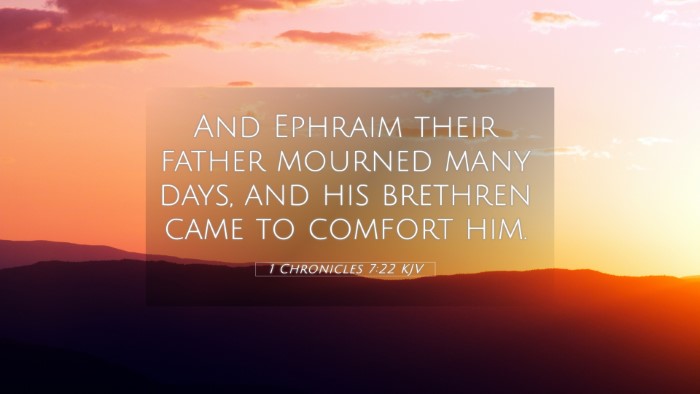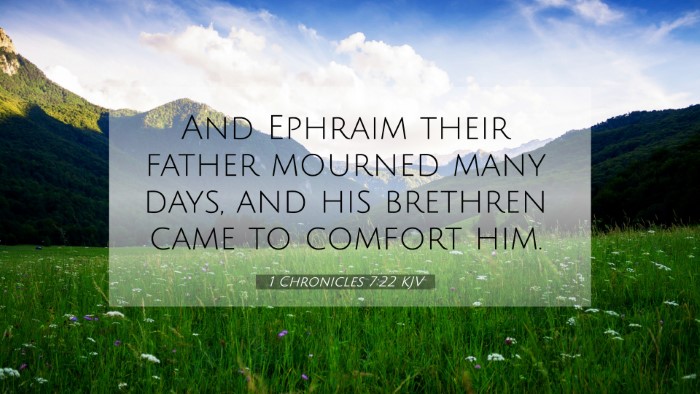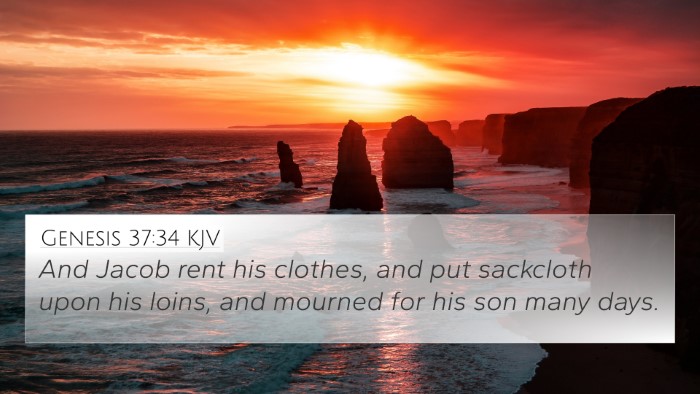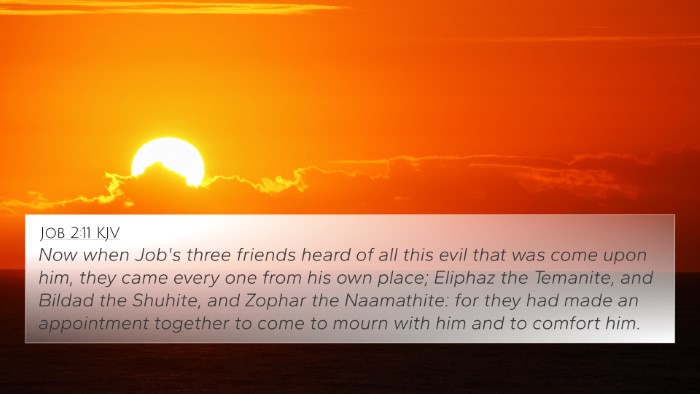Understanding 1 Chronicles 7:22
1 Chronicles 7:22 discusses the genealogical descendants of Ephraim and emphasizes the individual's role within the grand narrative of the Israelite tribes. This verse highlights the dynamics of family lineage and the significance of heritage in the context of Israel’s history.
Summary of Key Insights
Drawing from renowned public domain commentaries, we see a layered interpretation of this passage. The insights provided by Matthew Henry, Albert Barnes, and Adam Clarke deepen our understanding of the verse in relation to the entire scriptural narrative.
Matthew Henry's Commentary
Matthew Henry emphasizes the providential care of God in preserving the lineage of His people. He points out that the blessings that come through biblical genealogies indicate God's faithfulness across generations. For the descendants of Ephraim, this acknowledgment serves as an encouragement for the Israelite community, reminding them of their identity and legacy.
Albert Barnes' Analysis
Albert Barnes provides a more detailed investigation into the specific familial connections outlined in 1 Chronicles 7:22. He notes that the Ephraimites had faced challenges, yet the mention of their lineage indicates resilience and restoration. Barnes underscores the importance of these connections in understanding the broader theological implications tied to the life of Israel, emphasizing how God’s plans unfold through specific familial lines.
Adam Clarke's Insights
Adam Clarke offers a comprehensive view of the historical context surrounding this verse. He discusses the role of Ephraim as a tribe that often led in Israelite history but also experienced failure. Clarke's interpretation shows how 1 Chronicles 7:22 serves not only as a genealogical record but also as a theological statement about continuing faithfulness despite human shortcomings.
Cross-References and Thematic Connections
To deepen our understanding of 1 Chronicles 7:22, we can look at the following Bible verse cross-references:
- Genesis 48:13-20 - The blessing of Ephraim and Manasseh
- Numbers 1:32-35 - The census of the tribes, highlighting the tribe of Ephraim
- Joshua 16:4-10 - The territorial inheritance of the tribe of Ephraim
- 1 Chronicles 5:24 - A broader view of the descendants of Ephraim
- Isaiah 11:13 - The division between Ephraim and Judah
- Hosea 11:8 - God's affection for Ephraim as His son
- Acts 7:14 - Mention of the patriarchs in reference to the tribes of Israel
Thematic Significance and Interpretive Methods
The connections between Bible verses allow us to create a thematic understanding of God's narrative. 1 Chronicles 7:22 is an excellent example of how genealogical records matter not only in delivering historical accuracy but also in drawing readers into the narrative of faith. For those exploring Bible cross-referencing, tools such as a Bible concordance can enhance their study, offering paths for cross-reference Bible study to discover themes and relationships throughout scripture.
Understanding how to use Bible cross-references can guide scholars and casual readers alike toward deeper insights in their study. The passage invites us to appreciate the inter-Biblical dialogue that exists, linking Old Testament narratives with their fulfillment in the New Testament.
Conclusion
In summary, 1 Chronicles 7:22 represents much more than a genealogical note; it is a rich text that holds meaning in its connections to broader biblical themes relating to God’s promises, identity, and human faithfulness. By engaging with various commentaries and cross-referencing related texts, readers can gain a fuller perspective on the significance of this verse and uncover the intricate tapestry of biblical history.
